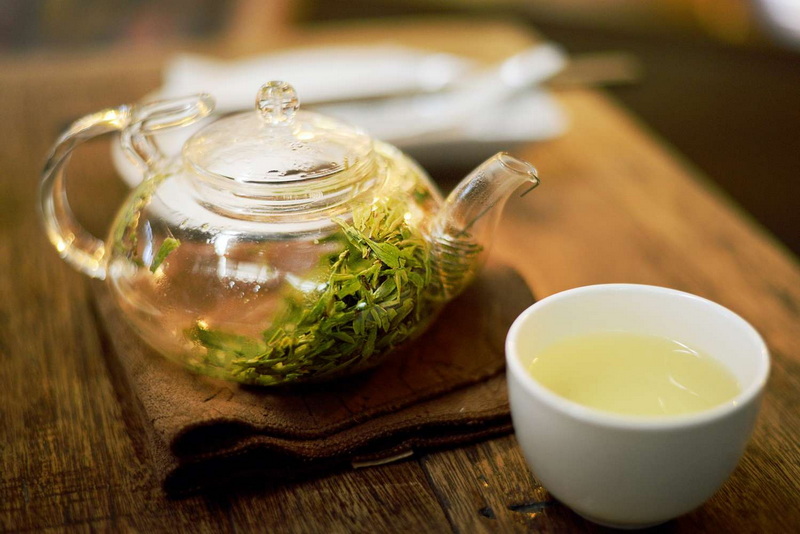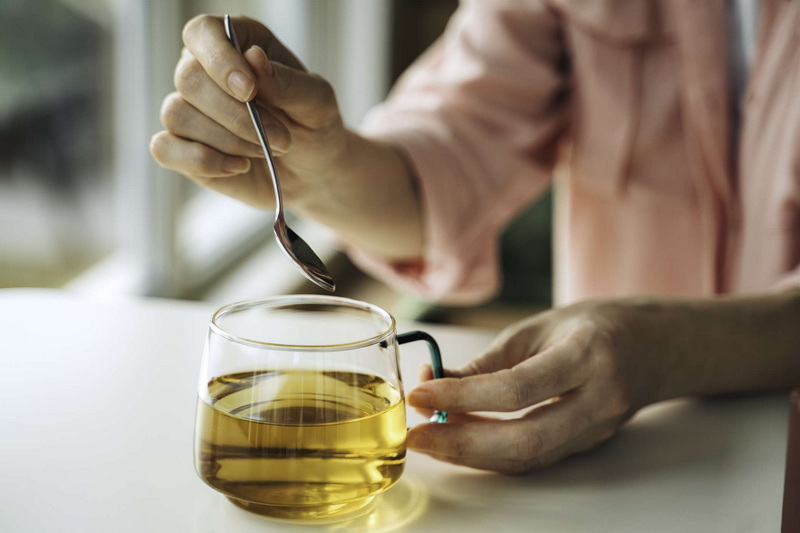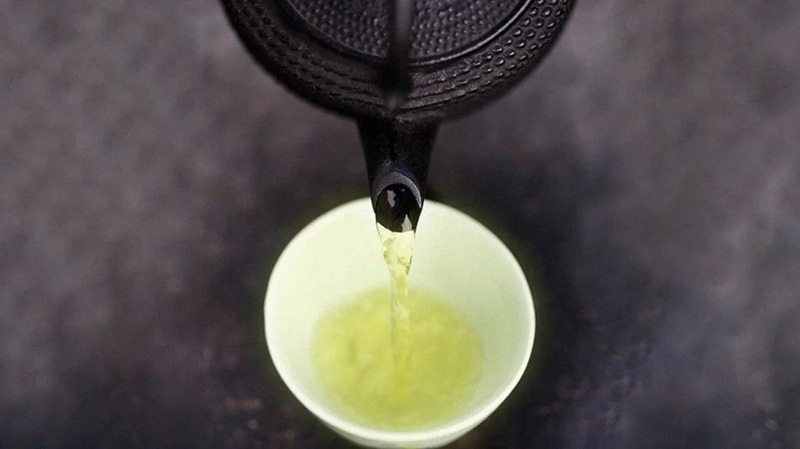Content Menu
● Understanding Green Tea Extract and Its Benefits for Acne
● How to Use Green Tea Extract for Acne
>> 1. Topical Application
>> 2. Green Tea Extract Masks
>> 3. Oral Supplementation
>> 4. Green Tea-Infused Skincare Products
● The Science Behind Green Tea Extract and Acne
● Tips for Maximizing Green Tea Extract Benefits
● Potential Side Effects and Precautions
● Conclusion
● Frequently Asked Questions (FAQ)
>> 1. How long does it take to see results from using green tea extract for acne?
>> 2. Can green tea extract be used alongside other acne treatments?
>> 3. Is it better to use green tea extract topically or orally for acne?
>> 4. Are there any specific skin types that should avoid using green tea extract?
>> 5. Can drinking green tea have the same benefits for acne as using green tea extract?
● Citations:
Green tea extract has gained significant attention in recent years for its potential benefits in treating acne. This powerful natural ingredient, derived from the leaves of Camellia sinensis, is rich in polyphenols, particularly epigallocatechin gallate (EGCG), which possess anti-inflammatory, antioxidant, and antimicrobial properties[1]. These properties make green tea extract a promising option for those seeking natural remedies for acne-prone skin.

Understanding Green Tea Extract and Its Benefits for Acne
Green tea extract is a concentrated form of green tea that contains high levels of catechins, including EGCG. These compounds have been shown to have multiple benefits for the skin, particularly in the context of acne treatment:
1. Anti-inflammatory effects: Green tea extract can help reduce redness and inflammation associated with acne lesions[1][3].
2. Sebum reduction: EGCG has been found to lower lipid levels and reduce sebum production, which can help prevent clogged pores and acne formation[3].
3. Antimicrobial properties: The extract can inhibit the growth of acne-causing bacteria, such as P. acnes[2].
4. Antioxidant protection: Green tea's antioxidants help protect the skin from free radical damage, which can contribute to acne and premature aging[3].
How to Use Green Tea Extract for Acne
There are several ways to incorporate green tea extract into your skincare routine to combat acne. Here are some effective methods:
1. Topical Application
Topical application of green tea extract has shown promising results in reducing acne lesions. A study found that a 2% green tea lotion applied twice daily for six weeks significantly reduced acne lesions[5].
DIY Green Tea Extract Toner:
- Brew a strong cup of green tea and let it cool
- Transfer the tea to a clean spray bottle
- Apply the toner to your face twice daily after cleansing
2. Green Tea Extract Masks
Creating a mask with green tea extract can provide a concentrated treatment for acne-prone skin.
Green Tea and Honey Mask:
- Mix 1 tablespoon of green tea leaves with 1 tablespoon of organic honey
- Apply the mixture to your face and leave it on for 20 minutes
- Rinse with cool water and pat dry
- Use this mask 3-4 times a week for best results[2]
3. Oral Supplementation
While topical application has shown more significant results, oral consumption of green tea extract may also contribute to acne reduction. A randomized, double-blind, placebo-controlled study suggested that green tea extract supplementation could improve acne in post-adolescent women[4].
Recommended dosage: Consult with a healthcare professional before starting any supplement regimen. Typical doses range from 300-400mg of green tea extract per day.
4. Green Tea-Infused Skincare Products
Many skincare brands now offer products infused with green tea extract. Look for cleansers, moisturizers, and spot treatments containing this ingredient.
How to choose: Look for products that list green tea extract or Camellia sinensis leaf extract high on the ingredient list to ensure a significant concentration.

The Science Behind Green Tea Extract and Acne
Research has shown that green tea extract can be effective in treating acne through various mechanisms:
1. Sebum Reduction: A study published in the Journal of Investigative Dermatology found that EGCG can reduce sebum production by inhibiting the activity of 5α-reductase, an enzyme involved in sebum synthesis[5].
2. Anti-inflammatory Effects: The polyphenols in green tea extract have been shown to reduce the production of pro-inflammatory cytokines, which can help alleviate acne-related inflammation[1].
3. Antimicrobial Activity: Green tea catechins have demonstrated antimicrobial effects against P. acnes, the bacteria primarily responsible for acne formation[2].
Tips for Maximizing Green Tea Extract Benefits
To get the most out of green tea extract for acne treatment:
1. Be consistent: Regular use is key to seeing results.
2. Combine with a balanced skincare routine: Use green tea extract alongside gentle cleansing and moisturizing.
3. Protect your skin: Always use sunscreen, as some studies suggest that green tea extract may increase sun sensitivity.
4. Stay hydrated: Drink plenty of water to support overall skin health.
5. Be patient: It may take several weeks to see significant improvements in your acne.
Potential Side Effects and Precautions
While green tea extract is generally safe for most people, there are some potential side effects and precautions to consider:
- Skin irritation: Some individuals may experience redness or irritation when using topical green tea extract. Always perform a patch test before full application.
- Caffeine sensitivity: Oral supplements contain caffeine, which may cause jitters or sleep disturbances in sensitive individuals.
- Drug interactions: Green tea extract may interact with certain medications. Consult your healthcare provider if you're taking any medications.
- Liver concerns: High doses of green tea extract have been associated with rare cases of liver damage. Stick to recommended dosages and consult a healthcare professional if you have any liver conditions[7].
Conclusion
Green tea extract offers a promising natural approach to treating acne, backed by scientific research and traditional use. Its anti-inflammatory, sebum-reducing, and antimicrobial properties make it a versatile ingredient in the fight against acne. Whether applied topically or taken as a supplement, green tea extract can be a valuable addition to your acne-fighting arsenal.
Remember that while green tea extract can be effective, it's not a miracle cure. For best results, combine its use with a comprehensive skincare routine, a healthy diet, and good lifestyle habits. If you have severe or persistent acne, it's always best to consult with a dermatologist for personalized advice and treatment options.

Frequently Asked Questions (FAQ)
1. How long does it take to see results from using green tea extract for acne?
Results can vary depending on the individual and the severity of acne. Generally, you may start to see improvements within 4-6 weeks of consistent use. However, some people may notice changes sooner, while others might need more time. Patience and consistency are key when using natural remedies like green tea extract.
2. Can green tea extract be used alongside other acne treatments?
In most cases, green tea extract can be safely used alongside other acne treatments. However, it's always best to consult with a dermatologist before combining treatments, especially if you're using prescription medications. They can advise on potential interactions and help you create an optimal skincare routine.
3. Is it better to use green tea extract topically or orally for acne?
Both topical and oral use of green tea extract have shown benefits for acne. Topical application tends to have more direct and faster effects on the skin, while oral supplementation may provide systemic benefits. For best results, you might consider combining both methods, but always consult with a healthcare professional before starting any new supplement regimen.
4. Are there any specific skin types that should avoid using green tea extract?
Green tea extract is generally well-tolerated by most skin types. However, those with extremely sensitive skin or known allergies to tea plants should exercise caution. It's always recommended to do a patch test before applying any new product to your face. If you experience any irritation, redness, or discomfort, discontinue use and consult a dermatologist.
5. Can drinking green tea have the same benefits for acne as using green tea extract?
While drinking green tea can provide overall health benefits, including some for the skin, using green tea extract topically or as a concentrated supplement is likely to have more direct and potent effects on acne. The concentration of beneficial compounds in a cup of green tea may not be high enough to significantly impact acne. However, incorporating green tea into your diet can still contribute to overall skin health as part of a balanced lifestyle.
Citations:
[1] https://pubmed.ncbi.nlm.nih.gov/32812270/
[2] https://www.stylecraze.com/articles/simple-ways-in-which-green-tea-can-help-reduce-acne/
[3] https://www.healthline.com/health/beauty-skin-care/green-tea-for-acne
[4] https://drmichellejeffries.com/green-tea-skin-acne/
[5] https://www.mdpi.com/2076-3921/6/1/2
[6] https://www.wellness.guide/green-tea-for-acne/
[7] https://www.medicalnewstoday.com/articles/green-tea-for-acne
[8] https://www.healthline.com/health/benefits-of-green-tea-for-skin






























